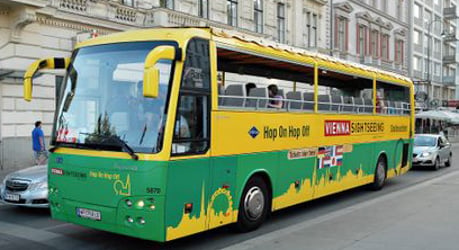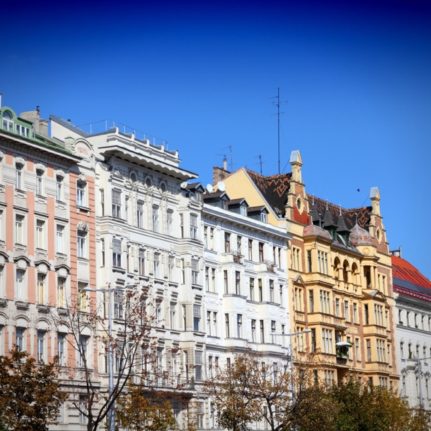Verena Buxbaum, a sociologist, lives in the area and is one of the founding members of the "pro karmeliterviertel" group, named after the area around the popular Karmeliter market.
She told the Wiener Zeitung paper that at peak hours a tourist bus thunders past her apartment every three minutes and disturbs her five-year-old twins.
They are "noisy, ruining the air quality, and causing hazardous traffic situations in a residential district with five primary schools within 150 meters," Buxbaum said. A Jewish school in the area has also complained about the risk the double decker buses cause to children walking to school along small, residential streets.
A petition set up in early July has already collected 1,000 signatures and will be presented at the next committee meeting of the district council.
For the past year buses run by the Big Bus Company have been stopping at the Karmeliter market and the Prater. "We were explicitly asked by the district to bring tourists to smaller places such as the Crime Museum or the Ambrosi-Museum," said Robert Moser, spokesman for the Big Bus Company.
Vienna Sightseeing Tours also added the 2nd district to its itinerary in early May, increasing the traffic.
The Chamber of Commerce has expressed clear support for the tourist buses in the 2nd district, also known as Leopoldstadt.
Leopoldstadt is one of the greenest districts in Vienna, it includes the Prater – a former imperial hunting ground – and the large Augarten park.
For the past 300 years it has been home to Vienna's largest Jewish population.



 Please whitelist us to continue reading.
Please whitelist us to continue reading.
Member comments